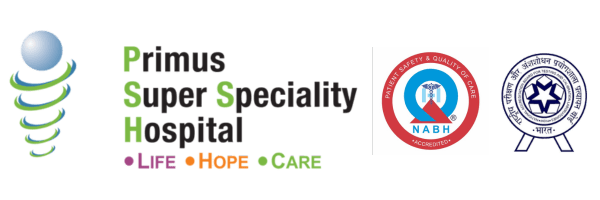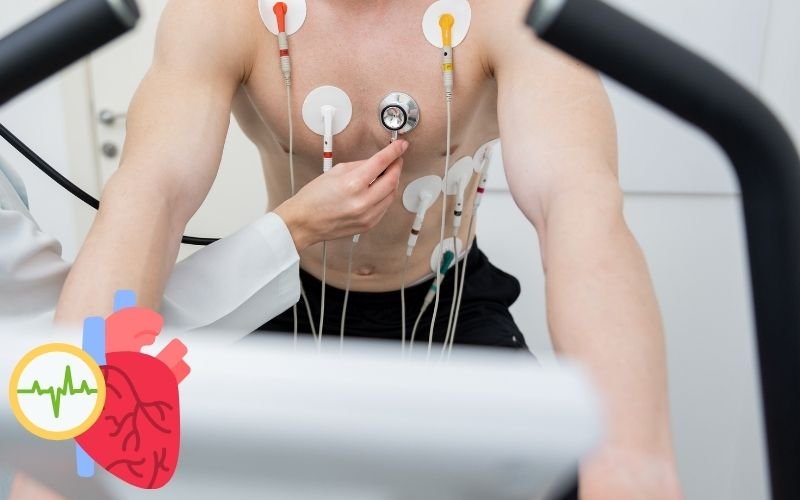Heart health is vital. Any condition that affects how the heart pumps blood can be dangerous. One such serious medical emergency is cardiac tamponade. Many people don’t know what it is until it becomes life-threatening. So, what is cardiac tamponade? Simply put, it’s a buildup of fluid in the space around the heart (the pericardium) that puts pressure on the heart. This pressure prevents the heart from pumping properly, which affects the body’s blood flow and oxygen supply.
If not treated quickly, it can be fatal. In this article, we explain the cardiac tamponade meaning, its causes, symptoms, diagnosis, treatment, and how it differs from similar conditions like pericardial effusion.
Cardiac Tamponade Definition
The cardiac tamponade definition refers to a condition in which fluid, blood, pus, or gas collects in the pericardial sac. The pericardium is the thin layer surrounding the heart. It usually has a small amount of fluid to reduce friction. But when too much fluid builds up quickly, it compresses the heart.
This makes it hard for the heart chambers to fill. As a result, less blood gets pumped out. Blood pressure drops. Oxygen doesn’t reach the organs. This is why heart tamponade is a medical emergency.
What Causes Cardiac Tamponade?
There are many cardiac tamponade causes. Some develop suddenly (acute), and others build over time (chronic). The most common ones include:
- Chest trauma (accidents, stab wounds, or surgeries)
- Heart surgery complications
- Cancer spreading to the pericardium
- Heart attack rupture
- Kidney failure causing fluid overload
- Pericarditis (inflammation of the pericardium)
- Tuberculosis (common in developing countries)
- Autoimmune diseases like lupus
- Anticoagulant (blood thinner) overdose
Fast fluid buildup is more dangerous than slow buildup, even if the volume is less. This is why quick diagnosis is crucial.
Cardiac Tamponade Symptoms: What to Watch For
The signs of tamponade may look like other heart problems, but there are some key red flags. Cardiac tamponade symptoms include:
- Low blood pressure (hypotension)
- Chest pain or discomfort
- Shortness of breath
- Fast breathing
- Weak pulse
- Dizziness or fainting
- Swelling in the arms or legs
- Feeling anxious or restless
- A choking feeling while lying down
In severe cases, patients may go into shock. That’s why heart treatment in Delhi is vital.
Beck’s Triad: The Classic Cardiac Tamponade Triad
Doctors look for a group of three signs called the cardiac tamponade triad, also known as Beck’s triad. These signs help in diagnosing the condition:
- Low blood pressure (due to reduced heart output)
- JVD or raised JVP (Jugular venous pressure)
- Muffled heart sounds (due to fluid around the heart)
The JVP in cardiac tamponade is raised because the heart cannot pump blood forward, so it backs up into the neck veins.
This triad isn’t always present but is a strong indicator when seen together.
Cardiac Tamponade vs Pericardial Effusion: Know the Difference
These two terms are often confused. But there’s a big difference between cardiac tamponade vs pericardial effusion.
- Pericardial effusion is the presence of fluid in the pericardial sac. It can be small or large and may not cause symptoms.
- Cardiac tamponade happens when that fluid puts pressure on the heart and causes it to fail.
In short, all tamponades have effusion, but not all effusions lead to tamponade. That’s why monitoring and regular checkups matter.
Cardiac Tamponade ECG: What It Shows
An ECG is a simple and fast tool to assess heart problems. The cardiac tamponade ECG findings may show:
- Low voltage QRS complexes (due to fluid reducing signal)
- Electrical alternans (varying beat size from the swinging of the heart in fluid)
- Sinus tachycardia (fast heart rate)
These signs help the best cardiologist in Delhi to confirm the condition and plan further tests.
How Is Cardiac Tamponade Diagnosed?
Besides ECG, several other tools confirm tamponade:
- Chest X-ray: May show an enlarged heart shadow
- Echocardiogram (Echo): The gold standard to detect fluid and its impact
- CT or MRI scan: Used in complex cases
- Blood tests: To find the underlying cause (infection, cancer, inflammation)
Heart Doctors may also check oxygen levels, urine output, and blood pressure changes over time.
Cardiac Tamponade Treatment: How Is It Managed?
Cardiac tamponade treatment depends on how fast the fluid collects and the patient’s symptoms. Emergency treatment aims to remove the fluid quickly and reduce heart pressure.
Initial Steps:
- Give oxygen
- Raise legs to improve blood flo
- IV fluids to stabilize blood pressure
- Monitoring heart rate, rhythm, and oxygen
Fluid Removal:
- Pericardiocentesis: A needle is inserted into the chest under ultrasound to drain the fluid. It gives quick relief.
- Cardiac Surgery in Delhi for fluid Drainage: If the fluid is thick or due to bleeding,cardiac surgery may be needed. Cardiac Surgeons in Delhi create a small window in the pericardium to drain it.
- Pericardial window: For long-term relief in chronic tamponade cases.
After the emergency is handled, the focus shifts to treating the underlying cause—like antibiotics for infection, chemotherapy for cancer, or stopping blood thinners if overdosed.
Long-Term Care After Heart Tamponade
After recovery, patients need monitoring to avoid future episodes. Follow-up may include:
- Regular echocardiograms
- Blood pressure checks
- Kidney and liver function tests
- Avoiding blood-thinning drugs unless advised
- Monitoring for signs of recurrence
A team of specialists works together, including cardiologists, surgeons, and sometimes oncologists or nephrologists.
Best Heart Hospital IN Delhi for Cardiac Care
Delhi has some of the best healthcare facilities in India. If you’re looking for the best cardiology hospital in Delhi, consider places with:
- 24/7 emergency care
- Advanced cardiac imaging and labs
- Experienced cardiologists and surgeons
- ICU facility hospital and surgical backup
- Good post-operative care
A Heart Hospital in Delhi that meets these standards offers the best chances for survival and recovery from cardiac tamponade.
Role of Cardiac Surgeons in Delhi in Emergency Cases
In some tamponade cases, pericardiocentesis may not be enough. You may need surgery.
This is where the best cardiac surgeon in Delhi plays a crucial role. Surgeons perform:
- Pericardial windows
- Pericardiectomy
- Managing bleeding or trauma
Their expertise ensures safety during complex procedures and lowers complications.
Psychological Impact of Cardiac Emergencies
Experiencing cardiac tamponade can leave a deep emotional mark on patients and their families. After the physical recovery, many patients feel anxious, afraid, or unsure about their health future. Some even develop symptoms of post-traumatic stress.
These emotional effects are real and valid. A complete treatment plan should include:
- Counseling support for patients and family
- Education on heart health to reduce fear
- Stress reduction techniques like meditation or breathing exercises
- Regular follow-ups to build confidence and trust in recovery
How to Prevent Future Cardiac Complications
Although cardiac tamponade is often sudden, some steps can reduce your overall heart risk. Prevention and awareness go hand in hand. You can lower your risk by:
- Managing chronic illnesses like kidney failure, hypertension, or autoimmune disease
- Getting regular heart screenings, especially if you have a family history
- Avoiding unmonitored use of blood thinners or steroids
- Sticking to follow-up plans after any cardiac surgery
- Recognizing early warning signs like unexplained fatigue or breathlessness
If you’ve had tamponade once, prevention becomes even more critical. Working closely with your cardiologist ensures timely tests and interventions, keeping your heart safe.
Importance of Timely Action
Cardiac tamponade moves fast. Delays can lead to heart failure, organ damage, or death. That’s why early recognition and fast treatment save lives.
Never ignore chest pain, breathlessness, or sudden weakness. Reach a heart hospital in Delhi as soon as possible if these symptoms appear.
Cardiac tamponade is a critical condition. But with early diagnosis and expert treatment recovery is possible. When it comes to heart emergencies trust only the best. Primus Hospitals, located in the heart of Delhi, offers world-class cardiac care. With advanced equipment, experienced specialists, and a dedicated team, we provide complete support from diagnosis to recovery
In case of medical emergency like cardiac tamponade or heart examination, Primus is the finest cardiac surgery hospital in Delhi. Primus Hospitals offers professional heart care in case you or a loved one require professional care. Nothing is good enough for your heart













